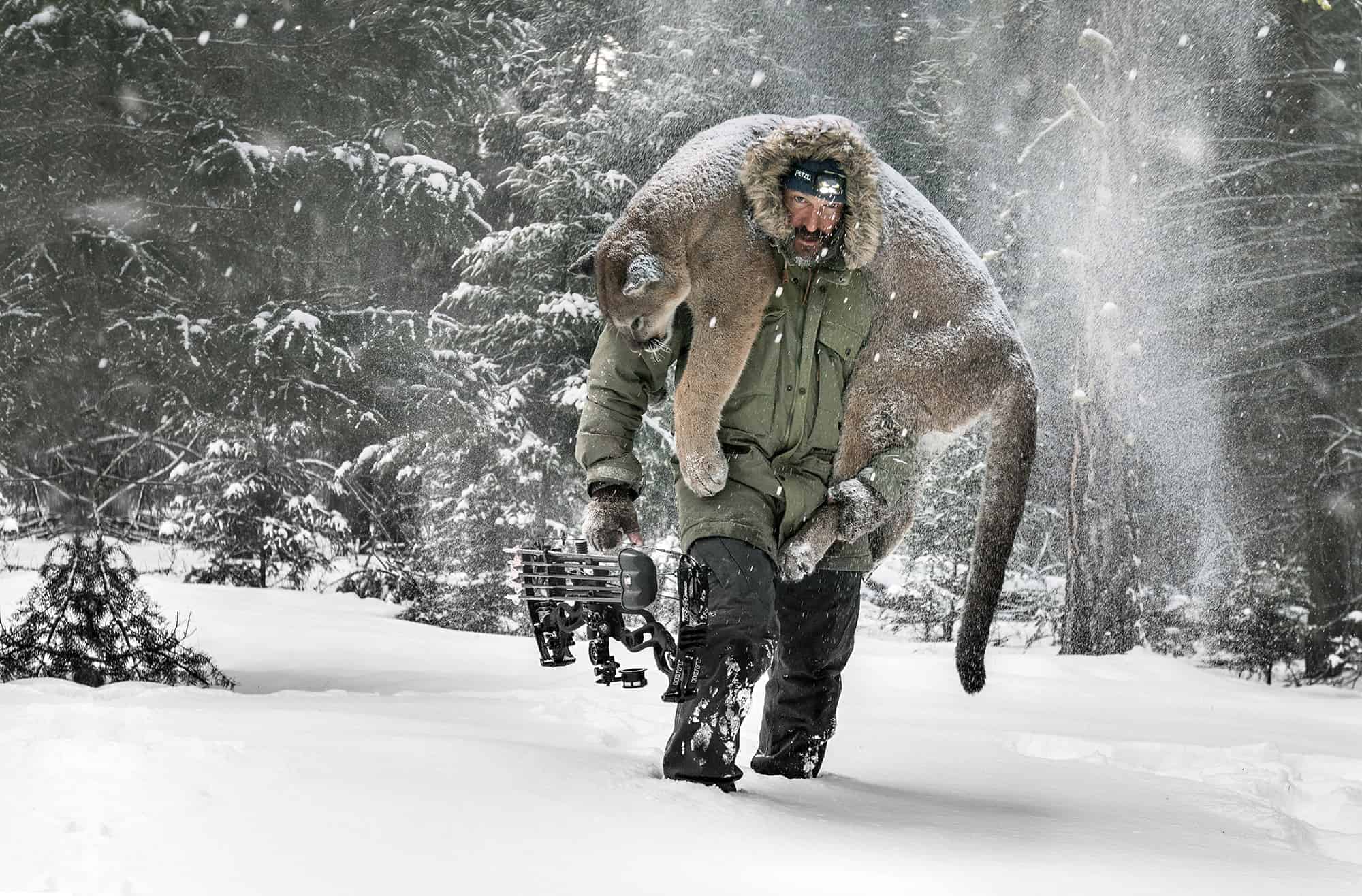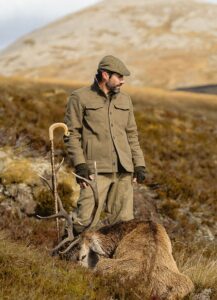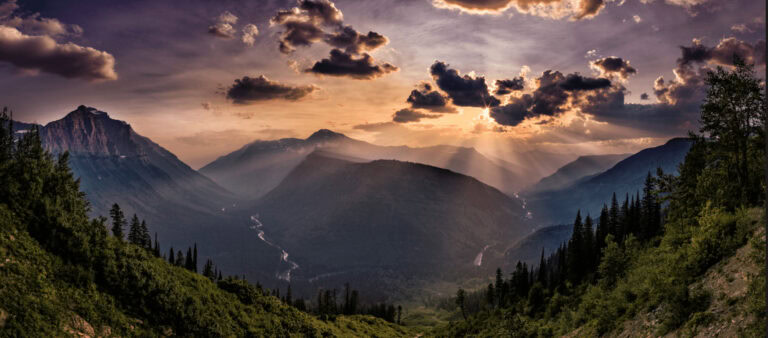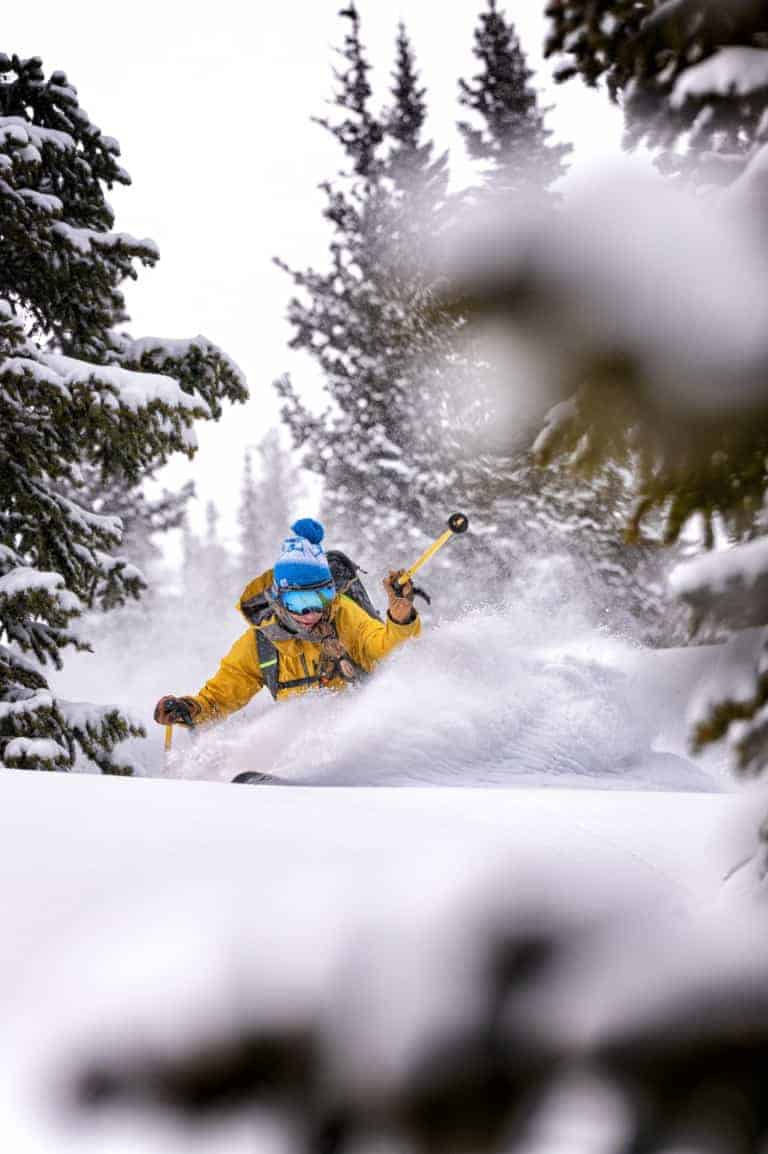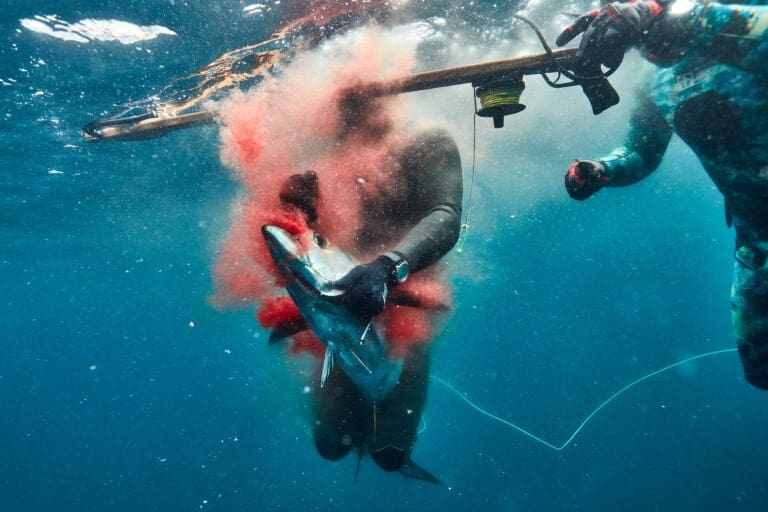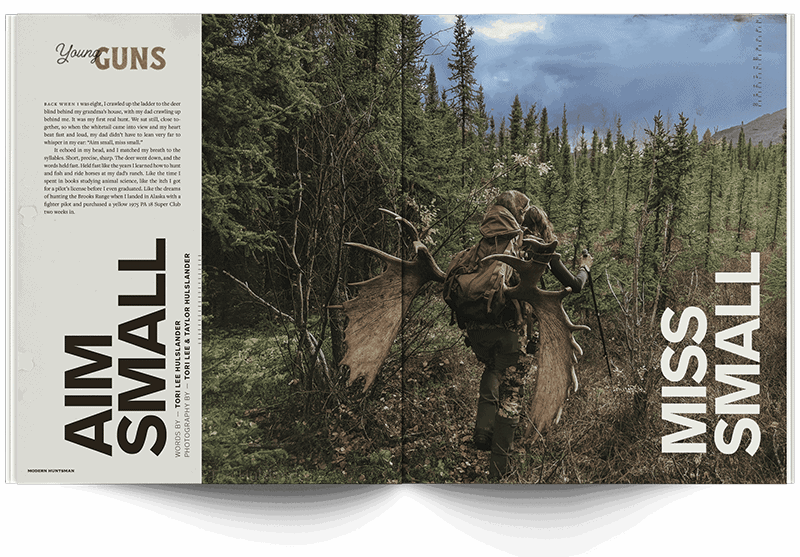Tyler Sharp: Tell us a bit about yourself, your background, and how you discovered a love for hunting and conservation.
Donnie Vincent: I always had a fascination with wildlife and exploration as a kid, seeking out snapping turtles, snakes and leopard frogs at a very early age. This interest turned into a full-blown passion in college, where I studied wildlife biology, giving me the amazing opportunity to join a trip studying Bengal tigers in Bangladesh and Nepal, and later Pacific salmon in Alaska. What began as a series of summers spent living and researching in Alaska turned into a lifestyle with exploration, wilderness and wildlife at its core.
I imagine my love for hunting lies mostly in my genes, as I’ve always wanted to hunt and fish even with little exposure or guidance on hunting available to me as a child. I did have access to my father’s and grandfather’s hunting library, however, and I couldn’t get enough. My love of the wilderness, adventure hunting and storytelling was no doubt fostered by the pens of Jack O’Connor and Aldo Leopold. Read O’Connor and you can’t help but want to hunt sheep; read Leopold and you can’t help but realize there is a wild world right outside your door, a fascinating one of detail, awe and wonder.
Combine these two loves and you get the core of who I am today. My passion for adventure and storytelling and my willingness to take one more step have allowed me to experience fantastic things and meet my amazing team along the way. They are gifted and fearless. Together we have gone to places such as Patagonia, Newfoundland, British Columbia and the Arctic Circle — locations that take several days through amazing landscapes to reach, with the goal of bringing the story of adventure and the true ups and downs of hunting to life in our stories.
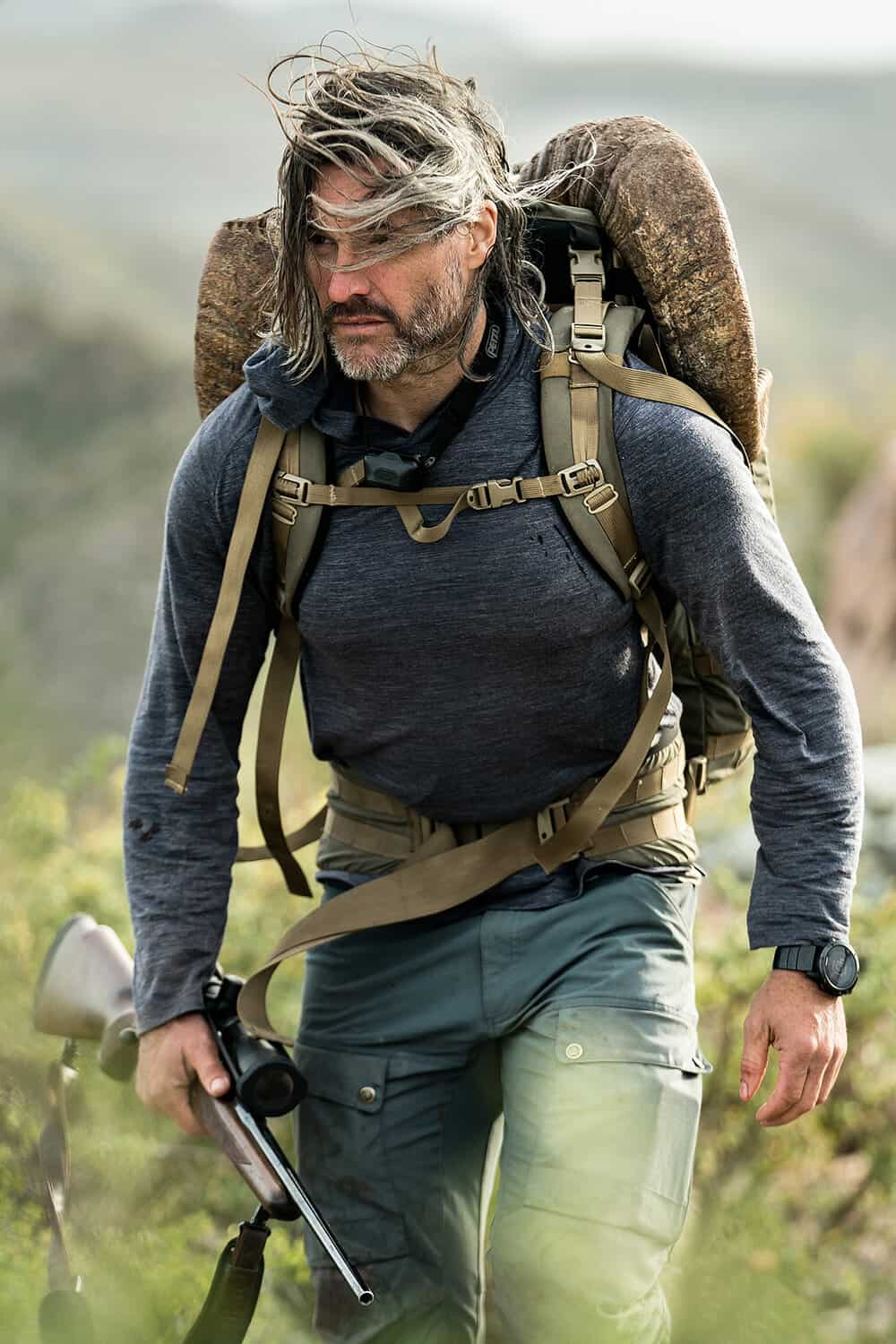
Why is wildlife conservation important to you?
This a great question, one that evokes an incredible amount of emotion and thought about our past, our current state and our future. Roughly 12,000 years ago, agriculture was invented, moving human beings away from their previous and mostly successful society as hunters and gatherers, a nomadic approach to finding food by hunting, fishing and foraging. I bring this up because hunter-gatherer societies kept human populations relatively small and mobile, naturally reducing our impact on wildlife and habitat. I believe our impact would resemble any natural population kept in harmony by natural recruitment and death. However, with the development of agriculture and domestication of wildlife, our populations began a perpetual boom, and I do mean perpetual as we approach eight billion people living on Earth.
When I am hunting or in the wilderness, I am drawn to the quiet and fascinated by both the complexity and simplicity of nature, along with her great power. If an area goes out of balance, we have the potential to see great destruction. As technology continues to hasten the world around us and as progression continues, it’s easy to forget how interconnected and dependent we are on a balanced ecosystem. It is more important than ever to ensure wild areas are maintained and not forgotten. It is critical for the longevity of our Earth, and we owe it to ourselves and to future generations to keep this in balance.
So, is wildlife conservation important to me? Yes, it’s vital. We can help where we have hurt. We are an amazing species, one that is capable of great good, along with fantastic devastation. Nature and wildlife need our help more than ever, whether that be with rifle or spade. We need todo more and work harder — hunter and non-hunter alike. Improving our land, air and water will do everything we hope it to.
As a hunter, how do you use your arrow or bullet to accomplish conservation goals and harvest the right animal? Do you take herd management into consideration, age class or health? Talk a bit about your criteria here.
Bullets and arrows are wonderful tools of conservation, particularly with animals that do well living amongst human intrusion, like the white-tailed deer of North America. Imagine hunting in a nearby woodlot — a heavy-hooved, old doe walks by and you send a well-placed arrow through her chest. In doing so, you’ve removed an individual from the population. However, consider this: you’ve also“removed” her next year’s fawns, and those fawn’s offspring of the next year’s lifecycle. Over 10 years, this might be 250 deer or more removed from the population. That’s a real impact. Not to mention the intrinsic value of feeding your family and releasing energy back into the environment. There are certain instances where this is needed.
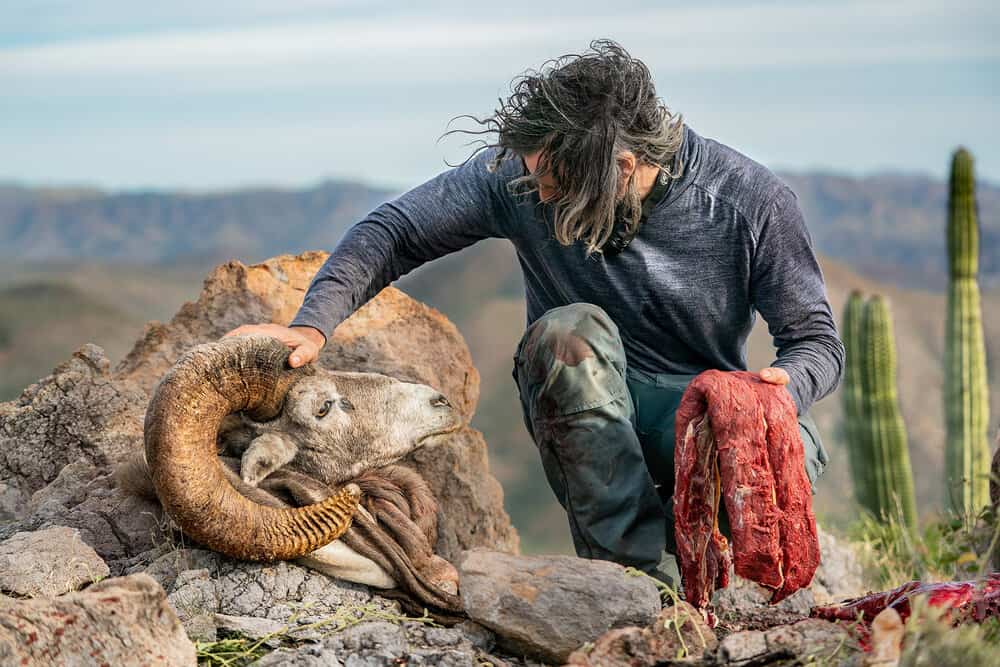
This type of impact isn’t always the desired case, however. Very often the animals that hunters take have little impact on the population. For instance, if it’s an older buck, there is much less impact. They’ve lived a long life and already contributed their fitness to the population, which are some of the reasons that I enjoy hunting them the most.
Saving our wild places takes major dollars and an even larger effort. Many of the places I have traveled to and hunted are primarily only visited by biologists, hunters and anglers. They are the ones witnessing this directly. This is vital to understand, for we can’t save anyone or anything from too far a distance. We must go, we must look and learn to trend toward being better. There are many reasons to hunt, both as a people and for our wildlife.
What role does wildlife management play in all of this? What happens when hunters do not participate in the management of certain species?
In a perfect world, wildlife managers (ecologists and biologists) would take center stage for making most, if not all, management decisions for hunters and non-hunters alike. These biologists would be our observers, our local and biological experts. They would collect consistent data on the animal’s population, recruitment, habitat and resource availability, along with sex ratios and age class, all to make an educated determination on how to improve a species or range. The goal would be to achieve greater balance.
Our lands and wildlife are interconnected. From grasses, to songbirds, to insects, they’re all vital, trickling down to healthy soils and up to healthy megafauna. As hunters, we have a great responsibility to hunt well and good. We need to constantly ask ourselves difficult questions. Are we making a contribution? Are we leaving places better than how we found them? Our greatest contributions may be to the places and animals that we’ll never hunt. If hunters did not act their part and responsibly hunt, or if hunting were to stop altogether without consideration for ecological impacts, there would be great imbalance. Aldo Leopold famously wrote, “Harmony with land is like harmony with a friend; you cannot cherish his right hand and chop off his left…We must take care of all, for we cannot afford to choose what land is more important.
Is the notion that “hunting is conservation” accurate, misleading or an oversimplification in your opinion? Should we be doing more as hunters?
Without a doubt, my answer would be “oversimplification.” Conservation is a complicated need. We humans are as complex a species as this Earth has ever known, and one that comes with continued exponential population growth. We are gobbling up and“improving” the land into either housing or food production at an alarming rate, leading us right back to this need of “conservation.” Hunters and fisherman understand this progression better than any other group, because we are watching it happen right before our eyes. Imagine a field just out of town that you used to hunt pheasants in with your dad and his old dog, but now it’s a Walmart, exactly like the other one a town over. Or maybe you remember duck hunting when there seemed to be no shortage of waterfowl migrating through. It’s not that there weren’t many ducks then — although there were — it’s more so that there were endless wetlands and prairie for nesting. Those lands are now more valuable to us for agriculture than for duck habitat. Not everything hunters do is rooted in conservation, but there isn’t a group doing more for our wilds than outdoorsmen and women. Should hunters be doing more? Absolutely, we all should be. I’m not going to sit here and give you the top 10 things that hunters can change for the better, but continuing to fund national conservation organizations is a step in the right direction. We must always be asking ourselves if we’re hunting and fishing well and good, if we’re improving the ground that we walk on, and if we’re giving more than we take. These are vital questions that have never been more important to ask. Hunters and fisherman must reach for their planting spades, chain saws and other tools of conservation and contribute to nature just as much, or more, than they reach for a rifle, rod or bow.
Your writing and films showcase the lens through which you see the natural world, one that leans more toward natural history than a traditional hunter/harvester mentality. Can you expand on this?
The idea of natural history fascinates me. Being able to find a particular species and to become the observer of their actual biology is quite moving. As children, I think most of us start out as naturalists, our interests in animals coming from zoos, TV and Walt Disney himself. I vividly remember exploring the maple forests around my parents’ Connecticut home. I’m sure it was only a few hundred acres, but back then it was all the adventure I ever wanted. In the summer I’d find turtles, frogs and snakes. I remember watching a northern water snake prey on dace, a small, silver-sided fish. I watched him actually catching fish and eating them and might as well have been watching Marlin Perkins on Mutual of Omaha’s Wild Kingdom. Fast-forward to today, and you’ll see my fascination for natural history has grown tenfold. Whether at home or as far away as the Arctic Circle, there is much to see all around us. Learn all you can about the wildlife you are sharing space with and your experiences will become truly untold.
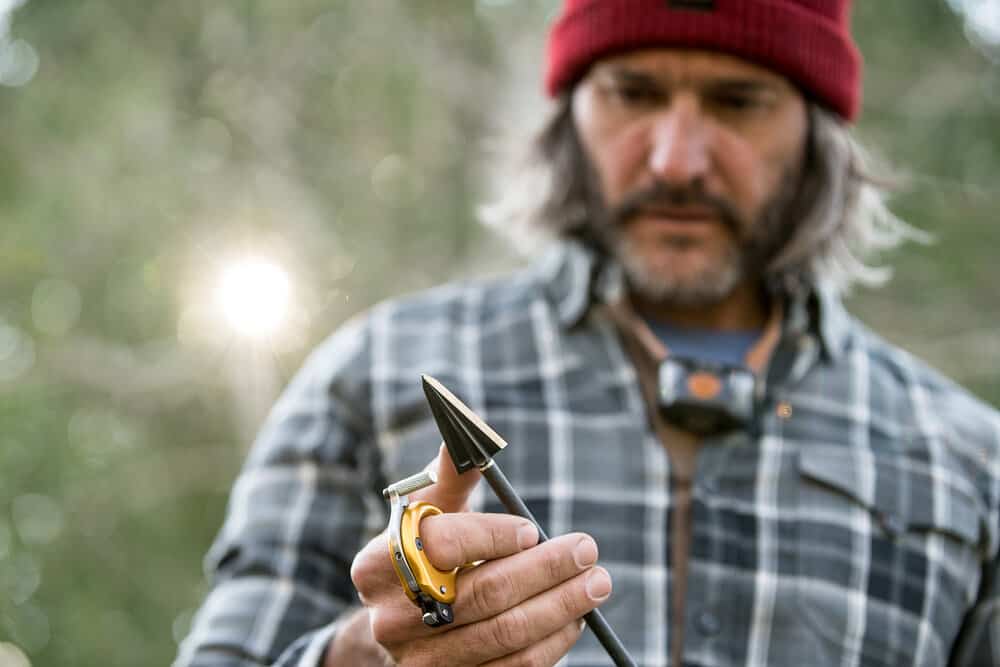
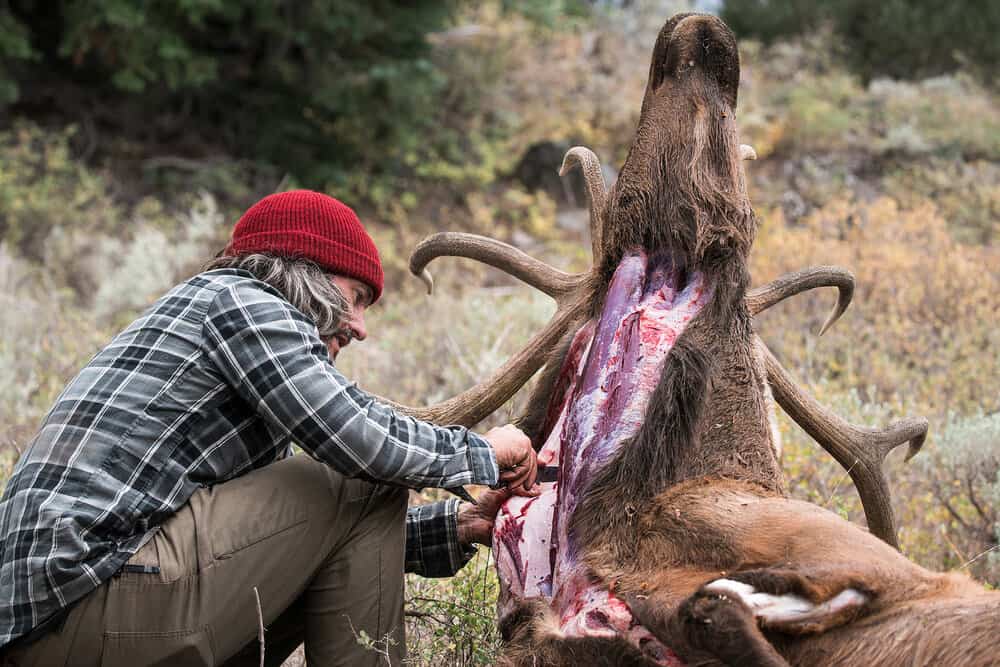
Ecology, when analyzed through its Greek root words, translates to“the study of one’s home.” How does ecology influence the way you hunt and in turn tell stories of these adventures?
This is a difficult question. On one hand, you could say without ecology there would be no hunting, because for the most part, ecology encompasses all that is in an animal’s life. On the other hand, it could be considered the stage on which the story takes place, which is how I like to think about it. Ecology certainly brings us to our desired location for a particular species, and it certainly shapes how we’ll likely hunt. For instance, if we find ourselves in the Sonoran Desert hunting mule deer, it will be a vastly different experience than hunting polar bears out of Hudson Bay, Manitoba.
Often, home holds your greatest tale, not of exploration necessarily, but certainly of relationship, and thus ecology. If I think about the relationship of human hunters — in this case, let’s consider Inuit people and their quarry of caribou, seals, whales or polar bears. Those animals have shaped entire cultures — their quarry defines their own ecology. People of this day and age who travel from their homes to hunt feel as though they harbor far less of a story than those of indigenous people from around the world. I have had the great opportunity to experience and witness the lives of many indigenous people in my travels and I have also had many adventures essentially “in my own backyard.” Since many people will never get to experience either, it’s just as important to tell the story and adventure of a local hunt as it is to relay the life and experiences of the animals and peoples within a remote area we are traveling to. Seeing the world through other people’s eyes opens your mind to the vast differences and surprising similarities in ecology around the world.
There are some animals that are more beloved in the public eye than others, and certain circumstances require us as wildlife managers to hunt them. Can you talk a bit about some of your experience with grizzly bears, wolves or mountain lions, and what you’ve learned in regard to the necessity of managing a population?
I’m beyond lucky to have had many days on which I’ve found myself sharing the wilderness with each of these species, and while they’re all entirely charming, they are also quite different — and, I might add, you should have your wits to be around them. I have the least amount of face time with mountain lions, even thoughI’ve spent countless weeks in lion country — no doubt being watched myself — but they’re just too secretive. I’ve seen only one, a large tom that I was hunting and killed near Lillooet B.C. I’m not a lion hunter per se, but I am a staunch believer in wildlife management, which is no different for predators, especially lions. Their numbers and home range continue to rebound from unregulated hunting at the turn of the century, and of course that can mean incredible pressure on local ungulate herds. Lions do well to be hunted, and I can say first-hand they are amazing to eat.
I have slightly more experience with grizzly bears, as I’ve hunted the great bears a number of times. They are far more visible, although sometimes in no other way than seeing their tracks from the previous night near your tent. Even after holding a number of bear tags, I’ve only seen one grizzly shot, and that was from an aggressive charge that you can watch in our latest film,The Other Side. Grizzly bears do extremely well to be hunted and managed. In much of their current home range, their numbers are strong. If nothing else, we should be hunting or culling several boars and a few sows every year. Lastly, wolves. Man alive is this a polarizing topic. Many want them gone, and a great many more want them properly managed and around. I am of the latter group. I’ve spent a lot of time with wolves, from incidental run-ins — incidental for me, not them — to sharing a research camp with an entire pack for over several months some summers ago. However, I’ve never killed a wolf, even after many opportunities. I’m not against killing wolves, not by a long shot, but thus far it hasn’t been for me. Just like the first two keystone species listed above, the wolf does well to be hunted, as long as it’s done with research in hand and done well and good by the hunter.
As a result of the emotional attachments to some animals that people form, it often causes them to overlook science, facts or logic, and even act aggressive and abusive online. Have you experienced some of that in your hunting career, and have you ever found success in getting through to someone, or communicating the reasoning behind such management?
By and large, the most polarizing images and hunt that I’ve written about have been around my B.C. mountain lion. Nearly all of the negativity was ripe with misinformation, much of it telling me the“puma is endangered” and that I’m a scumbag for killing one of the few remaining members of the population. However, the truth is that the area I was hunting has a substantial population of lions, so much so that the biologists wanted me to legally kill two individuals. Few of the criticisms were rooted in science — in fact, I’d say none. Very similar to the conversations recently circulating around the B.C. grizzly bear closure. Some people were upset that I killed a lion, until they found out that we ate all the meat — then they understood to a degree. Now, if you disagree with lion hunting, that’s fine, or if you’re against using hounds, I completely understand. I held many of the same prejudices, but rather than sling insults, let’s have an open-minded conversation. We are far removed from the people that we used to be as hunters and gatherers, and it’s 100% because our food and safety are now delivered to our front door. Insert a breakdown in modern society, and many people would rethink their judgements.
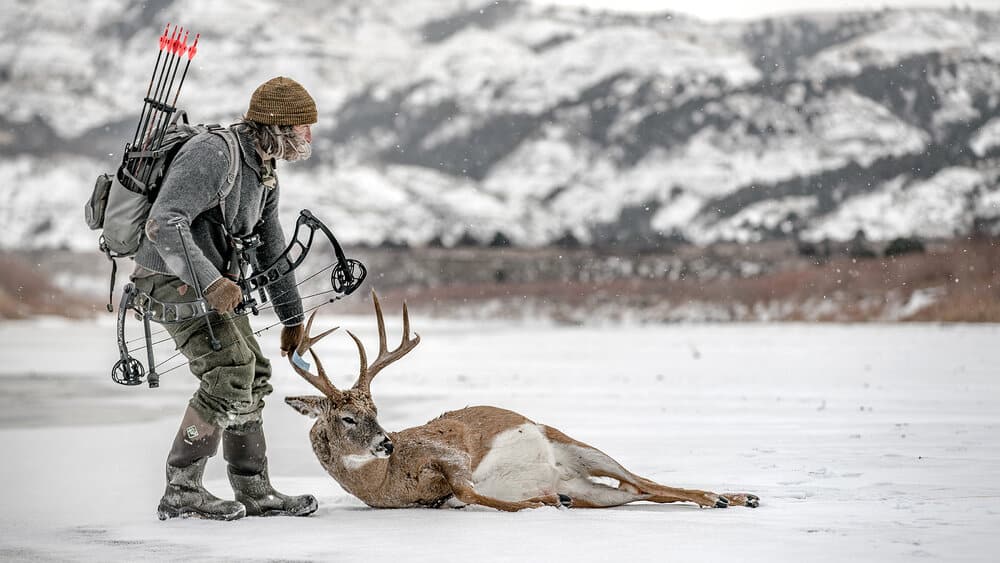
Now more than ever, it is important for hunters to represent our tradition in a positive light, whether through photographs, films or words, as many non-hunters or hunting-agnostic folks are watching. How do you find a balance between saying what you want but still use a tone that is still approachable or accessible for non-hunters?
It’s difficult to articulate who we are as hunters if a person has had no proper engagements with hunters and doesn’t hold the desire to hunt themselves. In the beginning, I was unsure how our films would be received, but I wanted to portray my love of wildlife, hunting and the outdoors with the goal of being authentic and true. At first, I struggled answering such questions, but then I researched human beings as a species and how we evolved, and it made complete sense.Hunt for the right reasons; hunt well and good; tell great, honest stories and people will listen and their minds will open. Do the opposite, and we’ll have very little opportunity to show the true value of hunting and the importance of wildlife management, conservation and nature.
It seems imperative that as hunters we are reaching “across the aisle” so to speak, engaging and communicating with peers outside of our industry, even collaborating with scientists, environmentalists, or outdoor recreationalists. Do you feel that the future of hunting depends on our ability to do this successfully?
Truthfully, yes. Hunters must be able to communicate why it is that we hunt, and more importantly, how we are protecting and improving our wild areas utilizing hunting as a tool, while also being stewards for all non-game species too. We must work toward improving entire ecosystems, and we must be conservationists above all else. One surprising outcome after releasing our films was the number of people who approached us telling us that our work articulates perfectly why they hunt and finally gave them a way to explain it to others. If we can relay this in an honest, passionate, non-confrontational way that shows our love for wildlife and the outdoors, it will help bring understanding and acceptance for the positive influence that conservation will have on our future and will help gain support for future generations to come.
In your opinion, what is the single greatest threat to wildlife conservation in North America?
Difficult question to pinpoint — instantly, my mind trends toward global climate change and overpopulation of human beings.But in all actuality, those are likely distant threats, not decades away, but still distant. Then I wander over into thinking about loss of habitat and privatization of public lands, and large-scale development. But again, these are symptoms of a greater issue, and that is the waning of our relationship with the land and its value to us. If wild places continue to hold less value than the progress of the mechanized world, then that is our greatest threat. People who don’t care or understand what value our wild places hold are very likely our greatest threat to conservation, for they will make selfish decisions based on emotion and greed.
How can we, as hunters, harvesters, and outdoorsmen and women, help to address this threat, one that unquestionably will affect the natural resources we depend on?
We are hunters — we always have been and we always will be. It’s the most important relationship we can have with the land; it’s really all we have left. If we lose this relationship, we are doomed, as our wild places will hold no more value to the casual bystander. If you do not hunt, fish, grow or gather, then I urge you to take a look around and celebrate the simplest of interactions, and the value will grow. Never look down on those who choose to participate, but find ways to enjoy, preserve and participate yourself. At the very least, research and read about wildlife management, ecology and conservation to understand how the world we live in is interrelated, from the smallest insect to the largest predator. Understanding the impacts of our actions and how small changes can make a positive difference is a start. This type of thinking can lead us to some lasting improvements in our ability to exist in balance with nature, as well as with other humans who don’t live the same lifestyle that you do.
